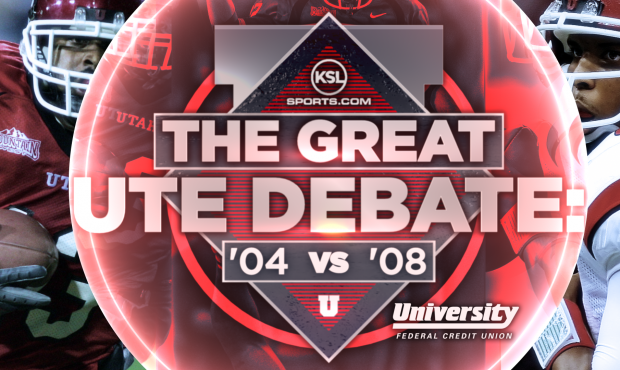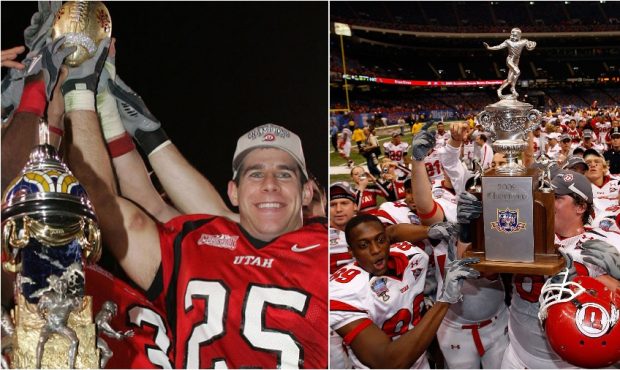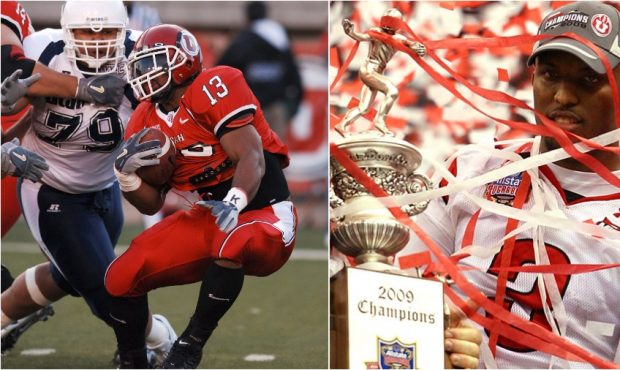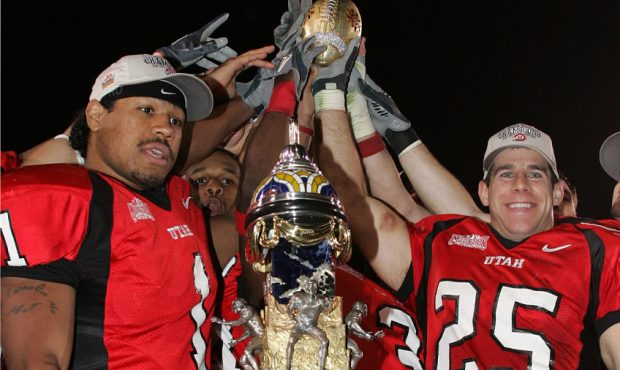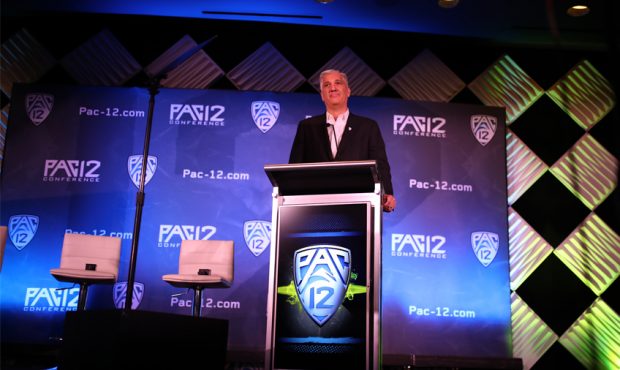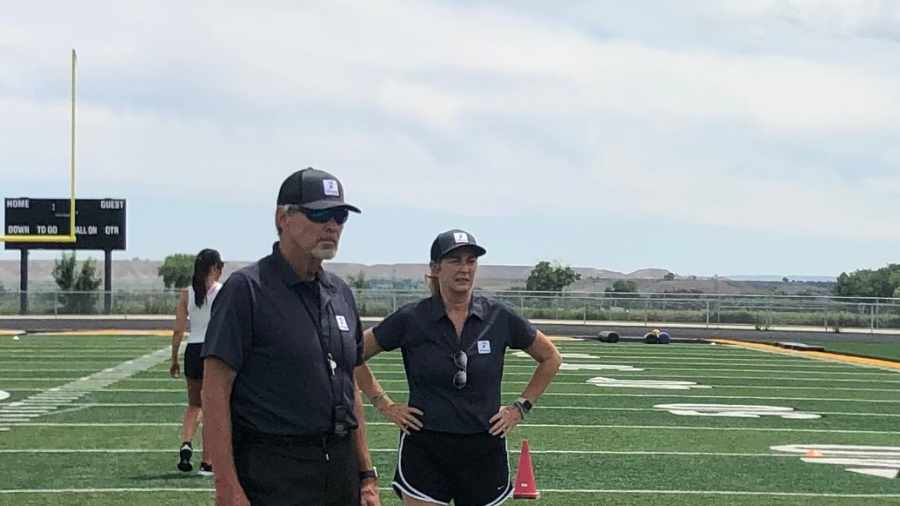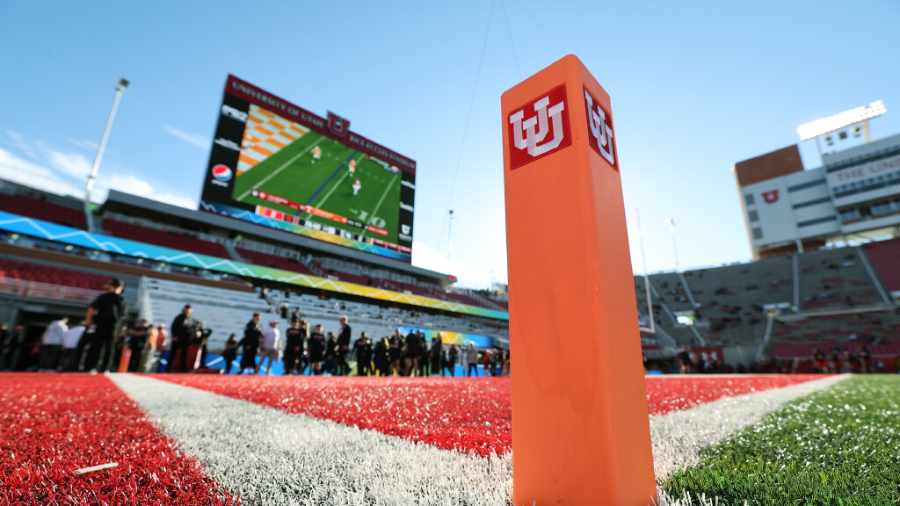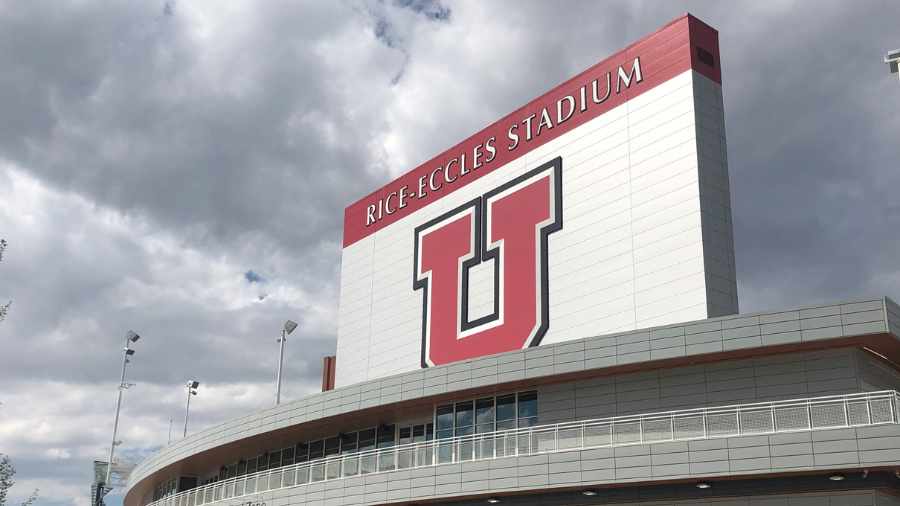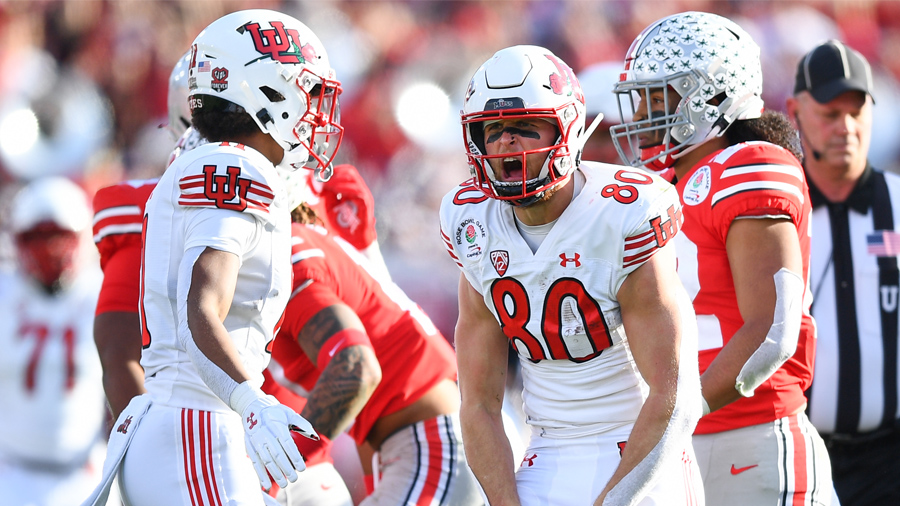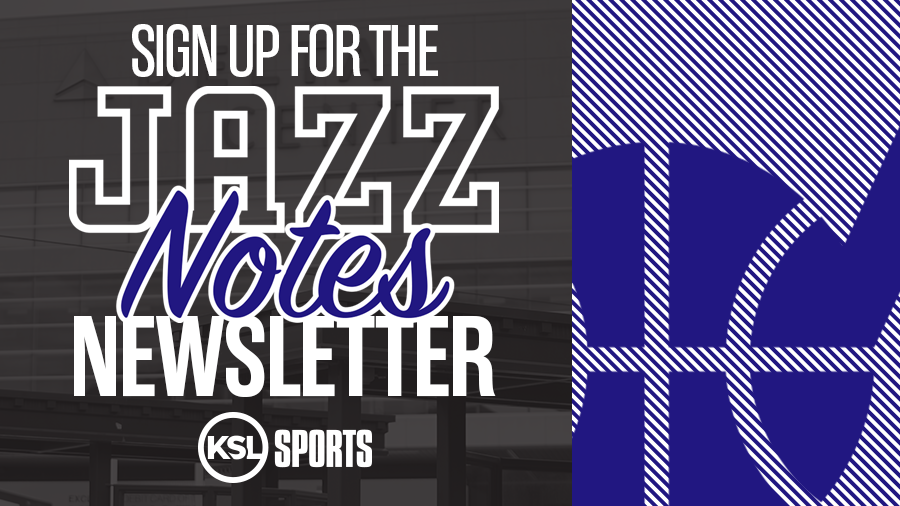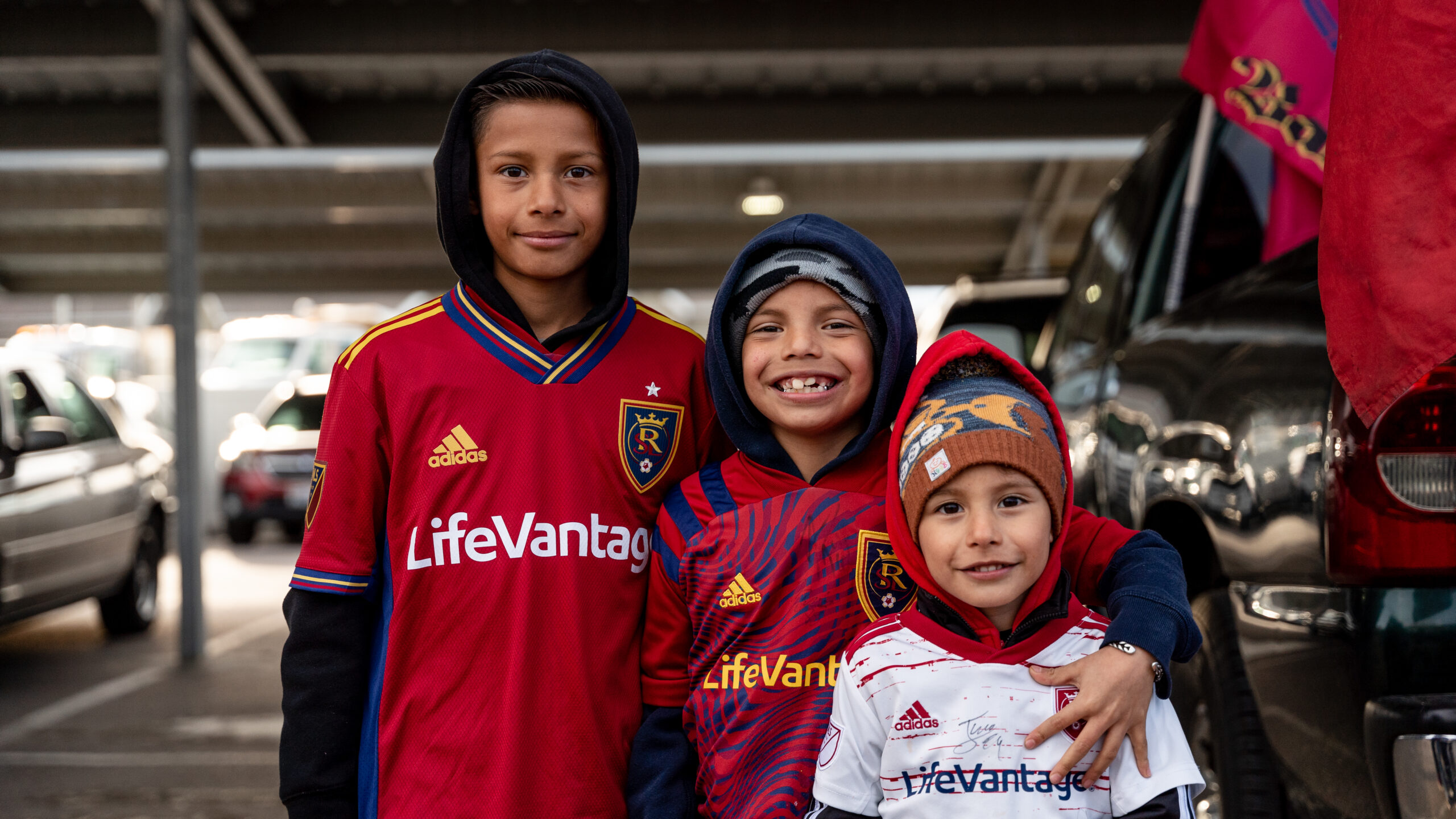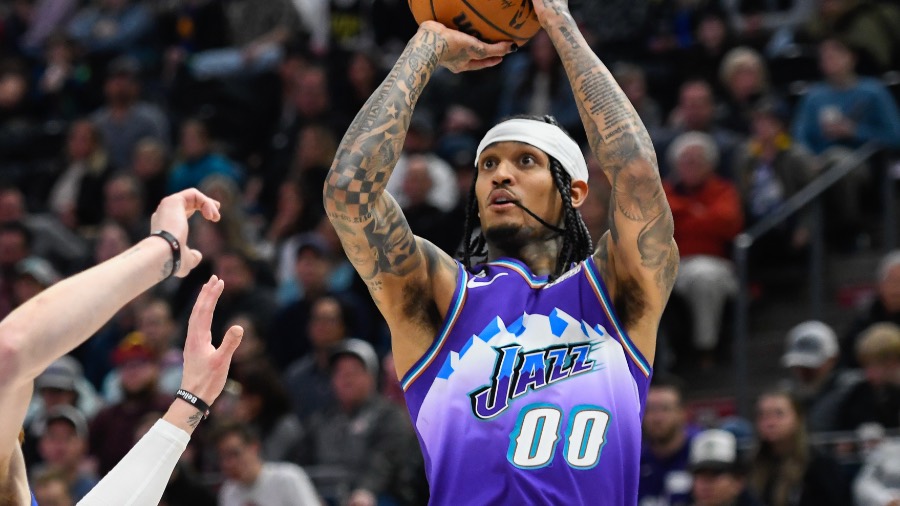Quinton Ganther: From Harsh Childhood To Utah Football, NFL & Weber State
Jun 7, 2020, 8:06 PM
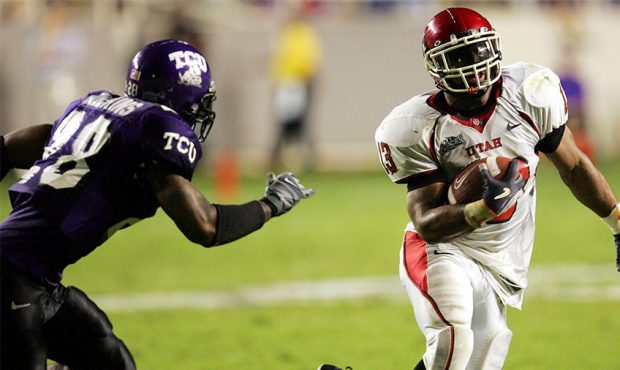
Running back Quinton Ganther #13 of the Utah Utes runs past Jeremy Modkins #28 of the Texas Christian University Horned Frogs on September 15, 2005 at Amon Carter Stadium in Fort Worth, Texas. (Photo by Ronald Martinez/Getty Images)
(Photo by Ronald Martinez/Getty Images)
SALT LAKE CITY, Utah – Former Utah running back Quinton Ganther great had to overcome a lot of obstacles in his childhood and was able to have a successful college football career at Utah and then a stop in the NFL before becoming a coach.
Ganther was born and raised in Northern California in Fairfield.
Growing up, he was moving from house to house and staying with different family members. But, that didn’t stop his determination to achieve his goal and that was to be seen playing football on TV.
Ganther sat down with the Crimson Corner podcast and told his story of how he got to Utah and is now a college football coach at Weber State.
Hard Times During Childhood
With Ganther growing up with parents that were on drugs, he had to grow up really fast in order to take care of himself and his sister.
“Well, my life is a little different, Ganther told KSL Sports. “I grew up in poverty inner city type deal. I grew up with my parents that were on drugs, so my life was a little harder. My father was in and out of prison and when he wasn’t in prison, he was on drugs. My mother was on drugs. It was just a tough upbringing, I had to grow up really, really fast and learn how to fend for myself and take care of myself. By the time I was seven years old, I was cooking full blown meals on my own trying to take care of me and my sister because if I didn’t cook, and I didn’t figure it out, then I didn’t eat.”
Ganther’s success later in his life came from a family that adopted him when he was 11 years old.
“It was situations like that where I lived with everyone in my family, from grandmothers to aunts to uncles until I was brought in and got adopted by a family when I was around 11 years old, who kind of looked out for me and took care me and allowed me to have the success that I’m having,”Ganther mentioned. “But my life was different.”
These stories from @SafetyPride, @john_madsen, Quinton Ganther and Paris Warren are pure gold.https://t.co/CEvdRFKbRr
— Trevor Allen (@TrevorASports) May 12, 2020
Originally, Ganther was a baseball player before he started playing football.
“I was a baseball guy,” Ganther stated. “Everyone I grew up with thought I was going to play professional baseball because I grew up with kids who were older than me. So I forced to be tough and hold my own. I was seven, eight years old, and the guys that I were hanging out with was 13 and 14 years old. So they had a big age gap on me and I fell in love with baseball.”
Ganther’s parents couldn’t afford for him to play football and his mom didn’t want him to play football but his godparents allowed for him to play the game without his parents even knowing.
After playing four years of high school football at four different high schools, Ganther spent two years in junior college where he was named a NJCAA All-American after his sophomore season in 2003.
Playing Career
When Ganther was in the recruiting process out of junior college, he received many offers including Oregon, Texas A&M, Tennessee and Washington State among many, he chose to play at Utah.
“The thing is I didn’t understand the conferences. I was an inner city kid who dreamed just to play on TV,” mentioned Ganther. “I had no idea what the Mountain West Conference was, I had no idea what the Pac-10 Conference was or SEC conference. I had no clue I just knew it was college football. To me, I thought it was all the same.”
Ganther’s first season with the Utes was in 2004 where he and Marty Johnson shared carries. That team went undefeated while becoming the first non-BCS school to win a BCS bowl game when they beat Pittsburgh in the Fiesta Bowl. Ganther didn’t know any of that stuff about college football when he was being recruited from junior college.
"We wanted to play Auburn. That was who we wanted because we wanted to make a statement to the country. We were up for that challenge." – Former Utah RB Quinton Ganther about wanting to play Auburn instead of Pittsburgh in the Fiesta Bowl.#GoUtes https://t.co/b3mVvFDWlz
— KSL Sports (@kslsports) May 4, 2020
“I thought if you went to a bowl game, you went to a bowl game. I didn’t know you have bowl games and the BCS bowl games,” Ganther said. “So I was naive because no one had ever really played college football that I had been around and grown up around to kind of take me under their wing and explain to me the difference in conferences and a difference in level of play. I went to Utah because I chose Utah from my heart, not because of the school. You know, nowadays you see these kids, they’re picking schools because of the name of the school it bites them in the butt. But that’s why you’re seeing so many guys transferring out because they’re signing up because the name of a school, they’re not signing up for the right fit for you, as a person at that school, where you can really flourish.”
Ganther’s senior year in 2005, he rushed for over 1,100 yards and was named second team All-Mountain West. He was taken in the seventh round of the 2006 NFL Draft by the Tennessee Titans where he spent four seasons with. The Utah legend also had stints with the Washington Redskins, Seattle Seahawks and Buffalo Bills.
Becoming A Coach
Becoming a football coach was far from Ganther’s mind when he ended his playing career. After his NFL days were done, Ganther moved back to Utah to finish his degree. His coaching path began where his division I playing career started. Utah.
“One thing that I wanted to do was I wanted to make sure I finish school,” Ganther stated. “So one thing I did was I went back to school, I didn’t have much left, I think I had like a year left to finish. So I called Utah and wanted to get my credits and see how much I had left. So, they told me to come back in and asked me about helping via student assistant coach, you know, come in and kind of help coach these guys up a little bit.”
Ganther agreed to help Utah as a student assistant coach for the 2012 season.
“I came back and kind of got my feet wet with coaching,” Ganther said. “I had no idea what it would be like, I never wanted to be a coach. Being a coach was not something that I wanted to do. So, I get there and and when I get back, I’m going to classes and in some of the staff meetings and in the position meetings, and just being able to teach these guys and give them my experiences and help them and at that time these guys have just seen me playing on Monday Night Football, now I’m in the room with them now, so they respected it and they listened to me. Then I just started falling in love with coaching. I didn’t even want to be a coach. I had no desire whatsoever to be a coach and that student assistant stint that I had in 2012 at the University of Utah, turned me into a full time coach.”
After his stint with Utah in 2012, Ganther accept an coaching internship with Pete Carroll and the Seattle Seahawks for the 2013 season. When his one year in the NFL ended, Ganther accepted an assistant coaching position for Jay Hill at Weber State.
“Coach (Jay) Hill gets the job at Weber State in 2014 and he calls me to come coach the running backs because Coach Hill when I was there (at Utah) and just happened to be the running backs coach. So with Coach Hill being the running backs coach, now I’m pretty much his assistant. For 2012, I’m showing him some running back drills, some things to do and some things to look at and so we’re learning from each other. When he got a chance to be a head coach, how I work with him and developed a relationship with him one on one a lot of the time because we’re together all the time now. He knows what I expect, he knows that I know how to coach the room he so when he got the job (at Weber) he was like, ‘this is a no brainer, this is my running backs coach.’ So that’s kind of how I got started.”
The best thing that Coach Ganther loves about his job is “changing lives.”
You can listen to the full interview with Ganther at the podcast link above.
Trevor Allen is a Utah Utes Insider for KSLSports.com and host of the Crimson Corner podcast. Follow him on Twitter: @TrevorASports. You can download and listen to the podcast, here.

